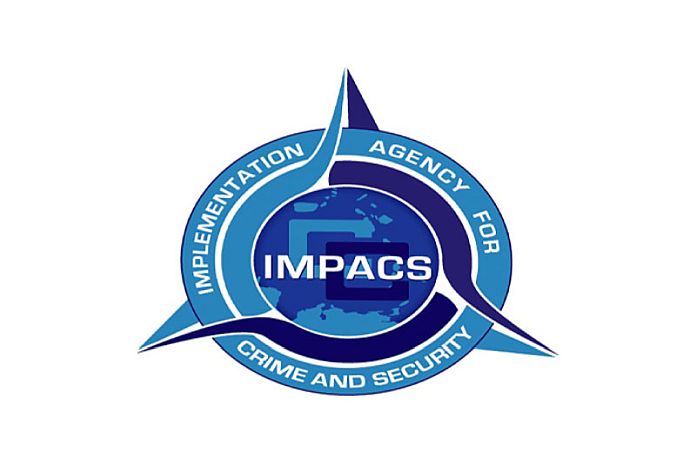BRIDGETOWN, Barbados – Border security across the Organisation of Eastern Caribbean States (OECS), is essential for enhancing trade and keeping the region safe. It enables the legitimate movement of goods and travel while protecting citizens from harmful goods, drug trafficking, arms smuggling, and other cross-border offences.
To strengthen the management of borders within the OECS, the Caribbean Community (CARICOM) Implementation Agency for Crime and Security (IMPACS) is working to improve the functionality and use of its “Advanced Cargo Information System” (ACIS). The system intends to provide a centralised customs facility that expedites trade components such as cargo processing. It also collects information to monitor and apprehend persons and shipments linked to criminal activity.
The improvements are financed under the CARIFORUM-European Union (EU) Economic Partnership Agreement (EPA) and CARICOM Single Market and Economy (CSME) Standby Facility for Capacity Building through the “Establishment of Integrated Border Systems for The Organisation of The Eastern Caribbean States” project.
Valued at US$902,220, the project is implemented by CARICOM IMPACS in collaboration with national border control agencies and support from the EU and Caribbean Development Bank (CDB). The 30-month initiative will benefit seven OECS members – Antigua and Barbuda, Dominica, Grenada, Montserrat, Saint Lucia, Saint Kitts and Nevis and Saint Vincent and the Grenadines. Project outcomes are also expected to impact border systems of other CARIFORUM countries as a result of wider regional cooperation.
Through the project, participating countries will obtain a digital platform which will form part of a Maritime Single Window (MSW) system that will support more innovative, efficient and inclusive maritime operational strategies across the OECS. They will also benefit from the establishment of a risk management framework in relation to the ACIS to assist their customs administrations in strengthening safety and security across the region.
The support comes in response to calls from maritime and port stakeholders for improvements to inter-agency coordination, virtual service delivery, reduced costs, and increased productivity.
“This project demonstrates clearly the link between security and trade facilitation. Once we are able to differentiate various types of cargo through the application of risk criteria, we can identify cargo that pose security threats and treat with them accordingly, while allowing low-risk cargo to move freely to promote trade,” said Nadine Bushell, programme coordinator, CARICOM IMPACS.
The most recent project activity featured a course for 16 CARICOM IMPACS staff. Held between November 21 and 24, 2022, the course increased staff ability to recognise, analyse and manage risks for improved support to national border control agencies. It also built their capacity to ensure member states achieve greater compliance with customs laws.
More specifically, the course introduced the concept of risk management at IMPACS using the Advanced Cargo Information System; identified common risk indicators on cargo documents and shipments for appropriate action by member states based on the information sent; and created proper risk profiles on ACIS.
“This training came at a time when we are seeing an increase in illicit activities within our Member States. With CARICOM IMPACS having responsibility for the detection and prevention of crime and security in the region and with the wealth of knowledge we have acquired from this training, the agency is now in a better position to manage risks in the current environment,” said Ezra Gilbert, operator/analyst, Joint Regional Communications Centre (JRCC), CARICOM IMPACS who is responsible for the ACIS.
As a result of the 4-day training, CARICOM IMPACS staff are better prepared to help countries implement efficient and predictable entry and exit of vessels for the clearance of goods and services while mitigating risks to cargo and passengers on board.
“The information provided sets a very important basis for the development and proper analysis of high-risk cargo. I will use and develop a risk matrix to properly identify and make decisions on risk cargo or freights,” said Zara Hall, operator/analyst, advanced passenger information system, CARICOM IMPACS and course participant.
As the initiative strengthens regional border management through trade facilitation and security, countries are achieving a more enabling environment for supply chains and improving services to businesses who are involved in trade. They are also able to access intelligence that will allow them to achieve greater human security by detecting and preventing human trafficking to protect vulnerable groups.
“I was very happy to have been a participant of this training and I have learned the different layers of risk management, some areas of red flagging, and this has equipped me as an analyst of the JRCC to be more cognisant and more informed of some of the trends that are taking place within the Caribbean region,” said Darryl Damier, operator/analyst, advanced passenger information system, CARICOM IMPACS, who also took the training.
The project is consistent with the bank’s Strategic Plan 2022–2024, particularly through the promotion of regional cooperation and support for regional public goods, which also aligns with the region’s achievement of the Sustainable Development Goals (SDGs) 8 (Decent Work and Economic Growth) and 10 (Reduced Inequalities).
More information about the Establishment of Integrated Border Systems for The Organisation of The Eastern Caribbean States” project is available here.





